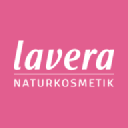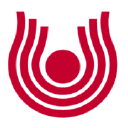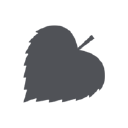Zusammenfassung
The global organic cosmetics market has seen robust growth, with an estimated $11.5 billion market set to reach $21.6 billion by 2025, with a compound annual growth rate of 9.4%. Germany stands out as Europe's leading market. The German organic cosmetics market grew at an annual rate of 6.4%, capturing 8.8% of the total German cosmetics market in 2016. Demand for organic cosmetics in Germany is being driven by a growing base of environmentally conscious consumers, with 1.2 million new consumers adopting organic cosmetics over a two-year period, including 900,000. Factors influencing this trend include an ageing population with substantial purchasing power, increasing household budgets for personal care, and a greater openness of the younger population to organic products. Despite the presence of major international players, local German brands such as Weleda, Dr. Haushka and Eco Cosmetics continue to thrive. Online sales have become an important channel, with 65% of Germans buying organic cosmetics online and the share of online cosmetics sales rising from 7.5% to 11.5%. German consumers focus primarily on value for money and product quality, particularly with 21% still paying attention to cosmetic ingredients. The market is also focusing on various certification labels, indicating a product's vegan, organic, natural and cruelty-free attributes, which serve as a guide for consumers looking for ethical and sustainable products.
Organic cosmetics market trends in Germany
The market for organic cosmetics in Germany has seen robust growth, underlining a clear demand for products that are not only effective but also respectful of the environment and consumers' health. The market, valued at around 1.3 billion euros, demonstrates the country's leadership in the adoption of organic beauty and skincare products, which account for around 8.8% of the total German cosmetics market.
One of the key drivers of this trend is growing consumer awareness of product ingredients, with around 21% of Germans scrutinizing the components of their beauty products. This heightened awareness is also reflected in purchasing criteria, with value for money and product quality being paramount considerations. In fact, German consumers are increasingly aligning their purchasing behavior with their ethical, health and environmental values. The robustness of the market is also reflected in trade figures, with global cosmetics exports reaching almost $4 billion and imports around $2.7 billion. France emerges as a key trading partner for Germany, for both cosmetics imports and exports. Demographic changes in Germany are also influencing market dynamics. In particular, the aging population, which currently accounts for over 21% of the total, has considerable purchasing power and contributes to the growth of domestic cosmetics consumption. In addition, the younger generation is more open to organic cosmetics, a trend that suggests potential for market expansion. The distribution of organic cosmetics is characterized by its diversity, the main channels being supermarkets, pharmacies, perfumeries and online platforms. Of these, pharmacies are particularly favored by 75% of Germans for the purchase of organic cosmetics, while online sales are following an upward trajectory, with the proportion of cosmetics sold online rising from 7.5% in 2015 to 11.5% in 2018. Despite the presence of international cosmetics giants, the German market is witnessing the rapid rise of local players, with brands such as Weleda and Dr. Haushka gaining ground.
This competitive landscape fosters innovation and offers consumers a wide range of choices. On the regulatory front, the ISO 16128 standard introduced in 2016 enables a clear differentiation between organic, organic-derived, natural and natural-derived cosmetic products. Various private labels such as BDIH, NaTrue, and EcoCert certify organic cosmetics, ensuring that they adhere to rigorous criteria, such as the exclusion of synthetic colorants, fragrances, silicones, parabens, PEGs, and products of animal origin.
Key players shaping the organic cosmetics landscape
The organic cosmetics market includes both large international companies and thriving local businesses that play a crucial role in the industry's dynamics. These entities stand out not only for their organic product offering, but also for their commitment to sustainable and ethical business practices, which respond to growing consumer demand for responsible consumption.
L'Oréal: Pioneering beauty innovation L'Oréal is a formidable giant in the global cosmetics industry. Although traditionally known for its wide range of beauty products, the company has embraced the organic movement by expanding its portfolio to include organic options. This strategic move enables L'Oréal to meet the needs of environmentally conscious consumers, and helps it maintain its leadership position in a rapidly evolving beauty market.
Unilever: a diversified brand name Unilever's presence in the cosmetics sector is marked by a diverse range of products that meet different consumer needs. As one of the market's leading players, Unilever is no stranger to the organic wave, as it focuses on organic ingredients and sustainable manufacturing processes as part of its product development. With this approach, Unilever aims to meet the growing demand for organic cosmetics while maintaining its reputation for quality and variety.
Estée Lauder: Bringing luxury to organic Estée Lauder brings a touch of luxury to organic cosmetics. Famous for its high-end beauty solutions, Estée Lauder has recognized the importance of natural and organic ingredients in attracting a discerning clientele. By integrating these elements into its product lines, Estée Lauder continues to redefine elegance with an ecological touch.
Weleda: the visionary of natural cosmetics Originating in Switzerland and with a strong presence in Germany, Weleda is synonymous with natural, organic personal care. A pioneer in the industry, Weleda stands out for its holistic approach to beauty and well-being. With a rich history dating back to the 1920s, the brand has always favored plant-based ingredients and environmentally-friendly production methods, earning it a loyal following among organic cosmetics enthusiasts.
Dr. Hauschka: Synonymous with authenticity Dr. Hauschka is another notable contender in the organic cosmetics market, renowned for the purity and efficacy of its skincare solutions. Founded on anthroposophical principles, Dr. Hauschka emphasizes the link between man and nature, which is reflected in its rigorous selection of ingredients and sustainable production processes.
Ecological cosmetics: A sustainable challenge Eco Cos
zur Marktentwicklung
Details zum Inhalt
 Information
Information
- Anzahl der Seiten : 30 seiten
- Format : Digitale und PDF-Versionen
- Letzte Aktualisierung : 05/06/2023
 Zusammenfassung und Auszüge
Zusammenfassung und Auszüge
1 Market summary
Presentation of the organic cosmetics market
The organic cosmetics market is a sub-segment of the broader cosmetics market. A cosmetic product includes any substance used to clean, moisturize or alter a person's skin, hair, nails or teeth
Cosmetics can be divided into two categories
- Beauty products: make-up, perfume, skin cream;
- Care products: shampoo, soap, deodorant.
Released in 2016, the iSO 16128 standard concerns organic and natural cosmetic products. It makes it possible to distinguish four main types of products: biological, biological derivative, natural and natural derivative. [ FEBEA ]
Natural and organic cosmetics are made from natural raw materials which makes them more respectful of the skin and the environment. They are certified by various private labels (and not the European label, which only concerns food products) such as labels BDIH , NaTrue or EcoCert which ensure that they meet several criteria: for example, that they do not use chemicals or products of animal origin, such as silicone, paraben, PEG (polyethylene glycol), synthetic dyes and perfumes, etc.
To be considered organic, products must contain at least 95 % of products from organic farming . [ BDIH Nevertheless, public opinion tends to identify them as products containing ingredients of natural and unprocessed origin. This is why we will take into account these two meanings of the word (certified organic and natural) in this study
The world market for organic cosmetics is booming and especially Germany the leading European market
The enthusiasm also affects large groups who see organic farming as a way of renew their product range and to regain consumer confidence. Trust is indeed a key element in gaining market share, which is why, for example, the number of different labels or the marketing of independent brands in specific distribution channels . Finally, the success of the online sale which is a real growth driver for small and large players
Alle unsere Studien sind online und als PDF verfügbar
Schauen Sie sich ein Beispiel unserer Forschungsarbeit auf einem anderen Markt an!
In dieser Studie erwähnte Unternehmen
Diese Studie enthält einen umfassenden Überblick über die Unternehmen auf dem Markt mit den neuesten Zahlen und Nachrichten zu jedem einzelnen Unternehmen :
 Diese Studie zu wählen bedeutet: :
Diese Studie zu wählen bedeutet: :
Zugang zu mehr als 35 Stunden Arbeit
Unsere Studien sind das Ergebnis von mehr als 35 Stunden Forschung und Analyse. Die Verwendung unserer Studien ermöglicht es Ihnen, mehr Zeit und Mehrwert in Ihre Projekte zu investieren.
Profitieren Sie von 6 Jahren Erfahrung und mehr als 1500 bereits erstellten Branchenstudien
Unsere Fachkenntnisse ermöglichen es uns, umfassende Studien in allen Bereichen zu erstellen, einschließlich Nischen- oder aufstrebender Märkte.
Unser Know-how und unsere Methodik ermöglichen es uns, Studien mit einem einzigartigen Preis-Leistungs-Verhältnis zu produzieren
Zugriff auf mehrere Tausend kostenpflichtige Artikel und Daten erhalten.
Businesscoot hat Zugang zu sämtlichen kostenpflichtigen Wirtschaftspublikationen sowie zu exklusiven Datenbanken, um Marktstudien durchzuführen (über 30.000 Artikel und private Quellen).
Um unsere Studien zu bereichern, nutzen unsere Analysten auch Webindikatoren (semrush, trends...), um Markttrends und Unternehmensstrategien zu identifizieren. (Siehe unsere kostenpflichtigen Quellen)
Garantierter Support nach Ihrem Kauf
Ein Team, das sich dem After-Sales-Kundendienst widmet, um Ihnen ein hohes Maß an Zufriedenheit zu gewährleisten. +49 65348069901
Ein digitales Format, das für unsere Benutzer entwickelt wurde
Sie erhalten Zugang zu einer PDF-Datei, aber auch zu einer digitalen Version, die speziell für unsere Kunden konzipiert wurde. Diese Version ermöglicht es Ihnen, auf Quellen, Daten im Excel-Format und Grafiken zuzugreifen. Der Inhalt der Studie kann somit leicht abgerufen und für Ihre Unterlagen angepasst werden.
 Unsere Angebote :
Unsere Angebote :
the Organic Cosmetics Market | Germany
étude sur mesure
5 Studienpaket (-15%) DE Germany
- 5 Berichte zu 75,6 € ohne MwSt. pro Studie aus unserem deutschen Katalog für 12 Monate zur Auswahl
- Sparen Sie 15% beim Kauf weiterer Studien
- Wahlweise Rückerstattung des nicht genutzten Guthabens am Ende des 12-monatigen Zeitraums (Laufzeit des Pakets)
Siehe die Bedingungen für das Paket und die Rückerstattung des ungenutzten Guthabens.























